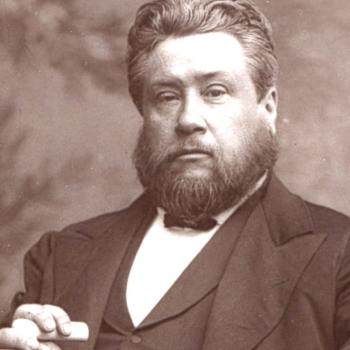I have also posted material from John Piper on articles 1 and 2 and have written myself on the Introduction as well as a combined post on Articles 1 and 2. If you haven’t already done so, I would encourage you to read the statement in full – it is available as a pdf or Google’s HTML version.
This post is part of an ongoing bloggers challenge I have set to encourage us all to work through this statement systematically – thanks to Crossway for donating five copies of God is the Gospel to encourage your participation!

Together for the Gospel – Article 3
We affirm that truth ever remains a central issue for the Church, and that the church must resist the allure of pragmatism and postmodern conceptions of truth as substitutes for obedience to the comprehensive truth claims of Scripture.
We deny that truth is merely a product of social construction or that the truth of the Gospel can be expressed or grounded in anything less than total confidence in the veracity of the Bible, the historicity of biblical events, and the ability of language to convey understandable truth in sentence form. We further deny that the church can establish its ministry on a foundation of pragmatism, current marketing techniques, or contemporary cultural fashions.
“That we henceforth be no more children, tossed to and fro, and carried about with every wind of doctrine, by the sleight of men, and cunning craftiness, whereby they lie in wait to deceive; But speaking the truth in love may grow up into him in all things.” (Ephesians 4:14-15)
We come now to the question as to how we are to hold on to the truth in love. What does it mean in actual practice? I cannot hold on to the air, I cannot grasp a mist in my hands and hold on to it. But I am told to “hold on” to something. Now it is but a matter of simple, elementary thinking to say that before I can hold onto anything I must know what it is. It must be something that can be held on to, something definite which can be described. And the Apostle says that it is some such thing, namely, truth. Obviously, therefore, this truth to which he is referring is capable of being defined. This, surely, follows of necessity. How can I judge these various “winds of doctrine” that blow round and about me if I have not got a standard? How may I know whether these winds of doctrine are true or false? How do I detect this “sleight of men” and their “cunning craftiness”, or realize that they are “lying in wait to deceive” me and to lead me into error, without having some standard? In business we believe in having a gold standard, and a yard measure; we have standards in “weights and measures”. We do so of necessity, for without them we would never know whether we were being dealt with fairly or being robbed; we would have no check on one another and business would be impossible. It is precisely the same in the spiritual realm and in the Church. You cannot avoid being carried about by every wind of doctrine unless you have a standard of judgment. You cannot hold on to something which is amorphous; you cannot lay hold on something which is as nebulous and vague and indefinite as the wind which blows in all directions.
By definition, the very term used, and the contrast with verse 14, insist upon our saying that the truth is something which can be defined and analyzed and stated in propositions. And yet, saying so, I am running entirely counter to what is being said at the present time, in spite of the fact that what I am asserting and arguing is based upon elementary logic and thinking, and upon honest dealing with the Word of God. But this, we are told, is fatal to brotherhood and fellowship and friendliness and unity, and by saying such things we are causing division. In the present century there is a marked dislike of creeds and confessions and precise definitions. Christianity has become a vague, indefinite spirit of good-will and philanthropy. This is stated quite openly in books and sermons, and the pronouncements of congresses and conferences. It is time we faced this issue and examined it in the light of Scripture. How can this modern attitude be reconciled with that which the Apostle is saying here? In the light of Paul’s teaching how can such things as congresses of Christians and Jews, and congresses of world faiths, be justified on the grounds that we are out on the same quest, and that there are many different routes for reaching the summit of a mountain?
This modern idea, moreover, is not only a denial of Scripture, but also a denial of the entire history of the Christian Church. There are sections of the Church in which in every service the worshippers recite together the Apostles’ Creed, the Athanasian
Creed, or part of the Nicene Creed. All the large Churches have Confessions of Faith; the Church of England has the Thirty-nine Articles, the Presbyterian Churches recognize the Westminster Confession of Faith, the Lutheran Church on the Continent has its Augsburg Confession, and many Churches use the Heidelberg Confession and Catechism, and subscribe to the Belgic Confession. In the light of this great fact of history, and without any desire to be critical, I am constrained to say that this modern attitude is arrogant. It is arrogant in that it dismisses virtually the whole of Church history and condemns all Creeds and Confessions.
Why and how did these Creeds and Confessions ever come into being? Although we know that the Apostles’ Creed was not drawn up by the Apostles themselves, it was drawn up by the early Church in order that believers might have a succinct statement of what the Apostles preached and taught. But why did the early Church believe that that was necessary? Why were the Athanasian Creed and the Nicene Creed ever drawn up? These are very pertinent questions. Are they to be dealt with by saying that life was leisurely in those days, and that philosophers and theologians enjoyed discussion and argumentation and the systematizing of thought? Was it the case that legalistic and argumentative men turned the delightfully “simple” Gospel of Jesus into something that was almost the exact opposite? Church history reveals very clearly that such was not the case and that every one of these Creeds and Confessions was drawn up to save the life of the Church and to safeguard the truth concerning our Lord and His great salvation. False teachings and errors had crept in, as the Scriptures had prophesied would be the case, and as the Apostles had warned. The result was confusion in the Church. In the providence of God there were leaders in the Church filled with the Holy Spirit who saw quite clearly that if this kind of teaching continued the Church would be destroyed. So they met together in great ecumenical councils, which simply meant that Christian leaders came from different parts of the world to deal with the situation.Unlike the modern ecumenical idea, they did not come together to say that they were all one and that differing views were of little consequence; they came together in order to state clearly what must be believed, and to state that those who refused to subscribe to such truth must be denounced as heretics and excommunicated. They felt that the whole life of the Church and the whole future of the Church was at stake and that there must be an end to the uncertainty and the confusion concerning vital doctrines. So they drew up their Creeds in which they defined what must be believed, and they drew a sharp distinction between right and wrong, and truth and error. History records the heresies and errors that came in about the Person of the Lord Jesus Christ, the Arian heresy and others, but Athanasius and eventually others, stood against it, and condemned it. But all that is dismissed with a wave of the hand today. It is, I repeat, not only a denial of the teaching of the Scripture but also a denial of the most glorious periods in the history of the Christian Church.
You cannot “hold on” to the truth unless you know what the truth is. There are certain doctrines which are absolutely essential to the Christian faith. One is the authority of the Bible. Without the absolute authority of the Word of God in matters of faith and conduct, how can one discriminate between truth and error? If this is not acknowledged as the sole authority, then “every wind of doctrine” is permissible; but if that were so, then there is no Christianity and therefore no salvation. Likewise there must be no argument about the Person of the Lord Jesus Christ. He is Son of God and Son of man, fully God and fully man. As we have seen, the early Church saw the crucial importance of this doctrine. The New Testament teaching is based entirely upon it. The great Epistle to the Hebrews was written to assert this and to show His pre-eminence and to maintain that “God hath spoken in these last days by His Son”. It was because certain Hebrew Christians had become doubtful about this truth that the author wrote his great Epistle to them. There must be no discussion concerning the fact that the Lord Jesus Christ, the Son of God, is the only Mediator between God and men. The Church is not to argue abut Him, His person, His miraculous birth, His sacrificial atonement, and His literal physical resurrection. If His bodily resurrection is not true and factual, says Paul to the Corinthians, “our preaching is vain, and your faith is also vain, you are yet in your sins”. It is as vital as that! Likewise with respect to the doctrine of the Atonement. Paul tells the Corinthians that the message which he was called and commissioned as an ambassador to preach was that “God hath made him to be sin for us, who knew no sin, that we might be made the righteousness of God in him” (2 Corinthians 5:21).
Also, as we have had occasion to emphasize already, there is the crucial doctrine of justification by faith. Paul tells the Galatians that if they deny this by introducing any works as contributory to salvation, they have “fallen from grace”. (Galatians 5:4). Let us remember that the false teachers who were troubling the Galatians were not actually denying the Person of our Lord, or His sacrificial atonement, but they were teaching that Gentiles must be circumcised in addition to believing in Christ. So specific is the truth that Paul cannot tolerate this false teaching and “withstood Peter to the face” for every having appeared to countenance it. Paul did not regard this question as to whether a Christian should be circumcised as a matter of indifference, and say that as long as one had any kind of vague belief in Christ all was well. He would make no concession at this point because to do so would be “to preach another gospel which is not another”. Indeed, what we have already considered in verses 4-6 is absolutely essential.
All emphasis mine.
The above excerpt is taken from:
D. Martyn Lloyd-Jones, An Exposition of Ephesians 4:1-16, Christian Unity, Baker Books, Grand Rapids, Michigan, 1980, “Speaking the Truth in Love,” chapter 20, pp. 245-249.












